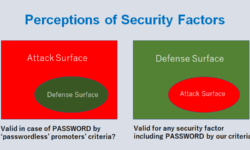Dr. Kevin J. Dooley, a Distinguished Professor of Supply Chain Management in the W.P. Carey School of Business at Arizona State University, a Chief Scientist of The Sustainability Consortium, and a Senior Sustainability Scientist in the Julie Ann Wrigley Global Institute of Sustainability based in the United States participates in Risk Roundup to discuss “The Need for Building a Resilient Supply Chain.”
Building A Resilient Supply Chain
Global supply chains are going through a rare and gigantic shock due to the COVID-19 pandemic. As we begin to evaluate the impact, our independent and interdependent risks, it is essential to determine how to make the supply chain more shock-proof for the coming tomorrow.
As seen, supply chains have been toppled while most nations went in lockdown. The COVID-19 pandemic has already hit global supply and demand, trade, and investment at an unprecedented speed and scale. With the initial shock of supply, and then demand, and a sudden shift in consumer behavior, the fragility of the supply chain has become visible. Now with the world slowly opening, the question is whether the current supply chains will continue, or whether there will be a transformation of the supply chains.
Visibility Of Vulnerabilities
For any nation to operate effectively, all its components need to operate effectively as well. That means supply chains of governments, industries, organizations, and individuals all must work smoothly. It is not one supply chain that matters; it is all supply chains for any individual nation—and similarly, any particular industry, business, and so on that matters.
In the aftermath of supply chain disruptions due to coronavirus, COVID-19 pandemic, the calls to bring more visibility to supply chain vulnerabilities, inter-connectedness, and interdependencies across the chain are growing. Because COVID-19 has led to lockdowns, many producers/manufacturers/suppliers in the chain had to cease production. Moreover, logistics providers were no longer able to transport goods as effortlessly. This was especially the case when shipping across the nation’s borders. Since much of the vulnerabilities, complexities, and challenges were not visible, much was lost, and the supply chains broke. As a result, it is crucial to understand and evaluate: Where are the gaps that prevent the visibility of the supply chains?
Perhaps moving away from paper to digital will be the first step to achieve the desired visibility across the entire supply chain. Obtaining this visibility is considered key to optimizing supply chain efficiency. The reason is during human-made or natural disaster-driven critical supply chain disruptions; this visibility in cyberspace will become crucial to understanding the impact of the disruption on the rest of the chain so that necessary and timely actions can be taken to developing routes to alternative suppliers.
Digitization Of Supply Chain
For increased visibility and to limit the impact of points of failure in the supply chain, it is vital to make data available to respective stakeholders through digital means. As seen across nations, organizations with robust digital infrastructure and effective regulations for digital transactions and commerce, are dealing with the supply chain disruptions much better than those without the necessary infrastructure. However, most nations are still reliant on paper-based processes.
COVID-19 has made clear that operations dependent on physical papers and the presence of humans, can face severe disruption when physical human existence is not a possibility. Digitizing, then, is not merely a matter of cost or convenience, but primarily of safety and security, sustainability, and visibility of the entire supply chain.
Risk- Resilience
Digitization of the supply chain is one thing, and bringing resilience is whole another. It is essential to understand where is the need for transformation to bring resilience. Based on lessons that are being reinforced and validated in the current global crises, there are several ways in which nations and their components can go about creating resilient supply chains in the post-COVID world.
For instance: Digital technologies like Internet-of-things, blockchain, control towers, artificial intelligence/machine learning-enabled demand forecasting, rule-based and self-adjusting stock allocations, autonomous devices such as AGVs and drones, among others can help reduce dependency on physical labor and presence across procurement, transportation, logistics, warehousing, distribution and more. Furthermore, artificial intelligence can modularize production. It can also shift/adapt lines with any changes in demand and can bring intelligent procurement to help organizations understand where and when to source depending on variables like past purchases, commodity pricing, industrial trends, and more.
In the post-COVID world, digital technologies seem to be playing a critical enabling role in delivering improvements throughout the supply chains. Since digitization will be the key to building more strong, smarter, and secure supply chains and ensuring a lasting recovery, it is essential to evaluate:
- What is required to transition to the new model?
- How can businesses respond to the immediate change?
- Which technologies are essential to bringing sustainability and resilience to the supply chains?
- Where is the transformation happening?
The time is now to begin a discussion on how to make supply chains resilient.
For more, please watch the Risk Roundup Webcast or hear the Risk Roundup Podcast
About the Guest
Dr. Kevin J. Dooley, a Distinguished Professor of Supply Chain Management in the W.P. Carey School of Business at Arizona State University, Chief Scientist of The Sustainability Consortium, and a Senior Sustainability Scientist in the Julie Ann Wrigley Global Institute of Sustainability. At TSC, Dooley leads a global research team that works with over 100 of the world’s largest retailers and manufacturers to develop tools that measure and track progress on critical product sustainability issues. He has published more than 100 research articles and has provided training or consultation for over 200 companies in the areas of sustainability, supply chain management, quality, and technology and innovation. He obtained his Ph.D. in mechanical engineering at the University of Illinois.
About the Host of Risk Roundup
Jayshree Pandya (née Bhatt), Ph.D., is a leading expert at the intersection of science, technology, and security and is the Founder and Chief Executive Officer of Risk Group LLC. She has been involved in a wide range of research, spanning security of and from science and technology domains. Her work is currently focused on understanding how converging technologies and their interconnectivity across cyberspace, aquaspace, geospace, and space (CAGS), as well as individuals and entities across nations: their governments, industries, organizations, and academia (NGIOA), create survival, security, and sustainability risks. This research is pursued to provide strategic security solutions for the future of humanity. From the National Science Foundation to organizations from across the United States, Europe, and Asia, Dr. Pandya is an invited speaker on emerging technologies, technology transformation, digital disruption, and strategic security risks. Her work has contributed to more than 100 publications in the areas of science and commerce. She is the author of the books, Geopolitics of Cybersecurity and The Global Age.
About Risk Roundup
Risk Roundup, a global initiative launched by Risk Group, is a security risk reporting for risks emerging from existing and emerging technologies, technology convergence, and transformation happening across cyberspace, aquaspace, geospace, and space. Risk Roundup is released in both audio (Podcast) and video (Webcast) format. It is available for subscription at (Risk Group Website, iTunes, Google Play, Stitcher Radio, Android, and Risk Group Professional Social Media).
About Risk Group
Risk Group is a Strategic Security Risk Research Platform and Community. Risk Group’s Strategic Security Community and Ecosystem is the first and only cross-disciplinary and collective community that is made of top scientists, security professionals, thought leaders, entrepreneurs, philanthropists, policymakers, and academic institutions from across nations collaborating to research, review, rate and report strategic security risks to protect the future of humanity.
Copyright Risk Group LLC. All Rights Reserved





 Impact Of COVID-19 Pandemic On The World Order
Impact Of COVID-19 Pandemic On The World Order